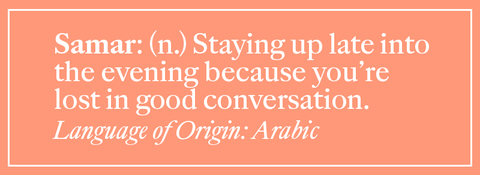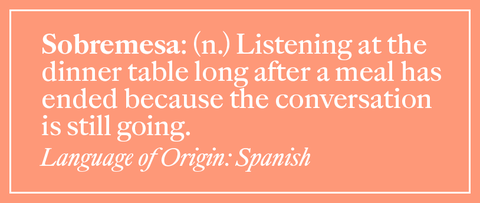How to Translate the Feeling of Home
There’s a subtle, but essential, distinction between “house” and “home.” One is a structure in which people live. The other is a place that nourishes the spirit. The dwelling where you can kick back, relax, and be your most honest self. Home is both a feeling and a place—and a topic of fascination, right up there with other four-letter words like love and life.
Many non-fiction books explore the concept of home, from Bill Bryson’s At Home to Judith Flanders’s The Making of Home. Novels, film, and TV speak to everything that can happen within a home (see: Little Fires Everywhere). And countless songs have captured the emotional nuances of a place, or a person, that inspires one to finally relax.
And there’s an entire cottage industry devoted to turning houses into cozy homes, through interior decoration and through nurturing healthy relationships. Home can also be a reflection of the resident’s values. In a column for O, The Oprah Magazine, Oprah explained how the process of interior decorating shares surprising similarities with soul-searching.
Clearly, the nuances of the word go far beyond the simplicity of its four letters—and its many facets are explored in numerous languages. With that in mind, we’re introducing you to concepts from other countries that to help you find new ways to cultivate the soul-warming feeling of home.
Cwtch
Meaning: Finding a sense of home and safety within the embrace of another person.
Language of Origin: Welsh
Try It: Give someone a good, long hug.
Fernweh
Meaning: Feeling homesick for a place you have yet to visit.
Language of Origin: German
Try It: Read novels in translation, watch foreign films, and become acquainted with places you’ve never been.
Gemütlichkeit
Meaning: A state of comfort and good cheer derived by doing nothing of great importance with people you love.
Language of Origin: German
Try It: Invite a group of friends over for a casual hangout. No big plans, no pressure to make a huge meal—think tea (or beer) and conversation around the kitchen table.
Mysig
Meaning: A cozy and warm atmosphere, especially on a cold day.
Language of Origin: Swedish
Try It: The next time inclement weather has you stuck inside, take a moment to relish how great it feels to be all snuggled up on the couch.
Peiskos
Meaning: The warm contentment you feel in front of a crackling fireplace.
Language of Origin: Finnish
Try It: Light a fire and hunker down with a good book. Cocoa optional, but recommended.
Philoxenia
Meaning: Welcoming strangers into your home as if they were loved ones.
Language of Origin: Greek
Try It: Next time someone brings a plus-one you don’t know to a gathering, go out of your way to make them feel special.
Samar
Meaning: Staying up late into the evening because you’re lost in good conversation.
Language of Origin: Arabic
Try It: Bring some thought-provoking questions to your next dinner party.
Querencia
Meaning: A place where you can be your most authentic self.
Language of Origin: Spanish
Try It: Build a sense of sanctuary. Therapist Nancy Paloma Collins recommends relying on your five senses and what they find calming. “Think about what you value when it comes to sight, hearing, touch, taste, and smell,” Collins says.
Sobremesa
Meaning: Lingering at the dinner table long after a meal has ended because the conversation is still going.
Language of Origin: Spanish
Try It: Invite the most interesting people you know over for a dinner party.
Tsundoku
Meaning: The pleasure of surrounding yourself with an ever-growing collection of books to be read.
Language of Origin: Japanese
Try It: Buy more books, of course.
This content is imported from embed-name. You may be able to find the same content in another format, or you may be able to find more information, at their web site.
This content is created and maintained by a third party, and imported onto this page to help users provide their email addresses. You may be able to find more information about this and similar content at piano.io









